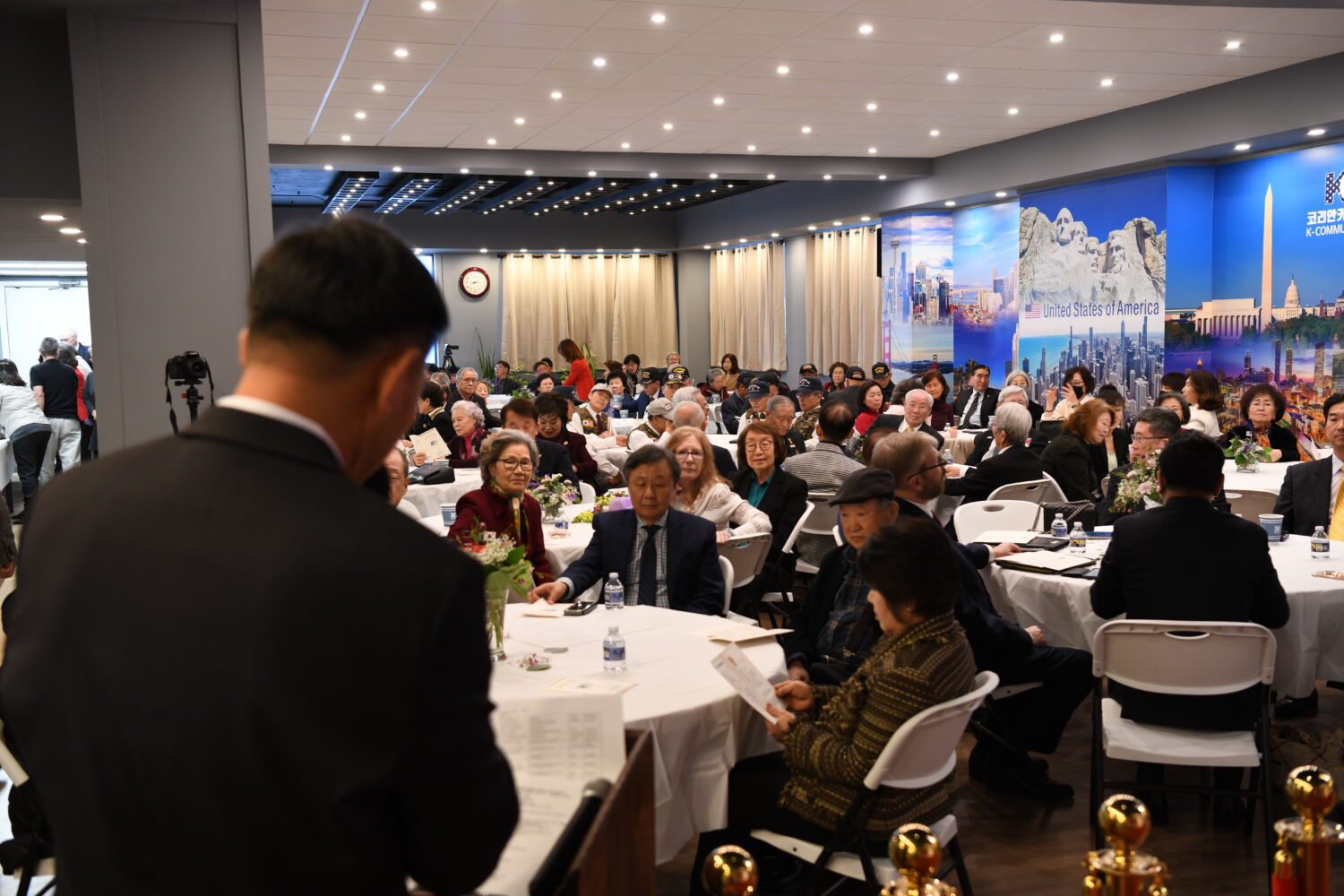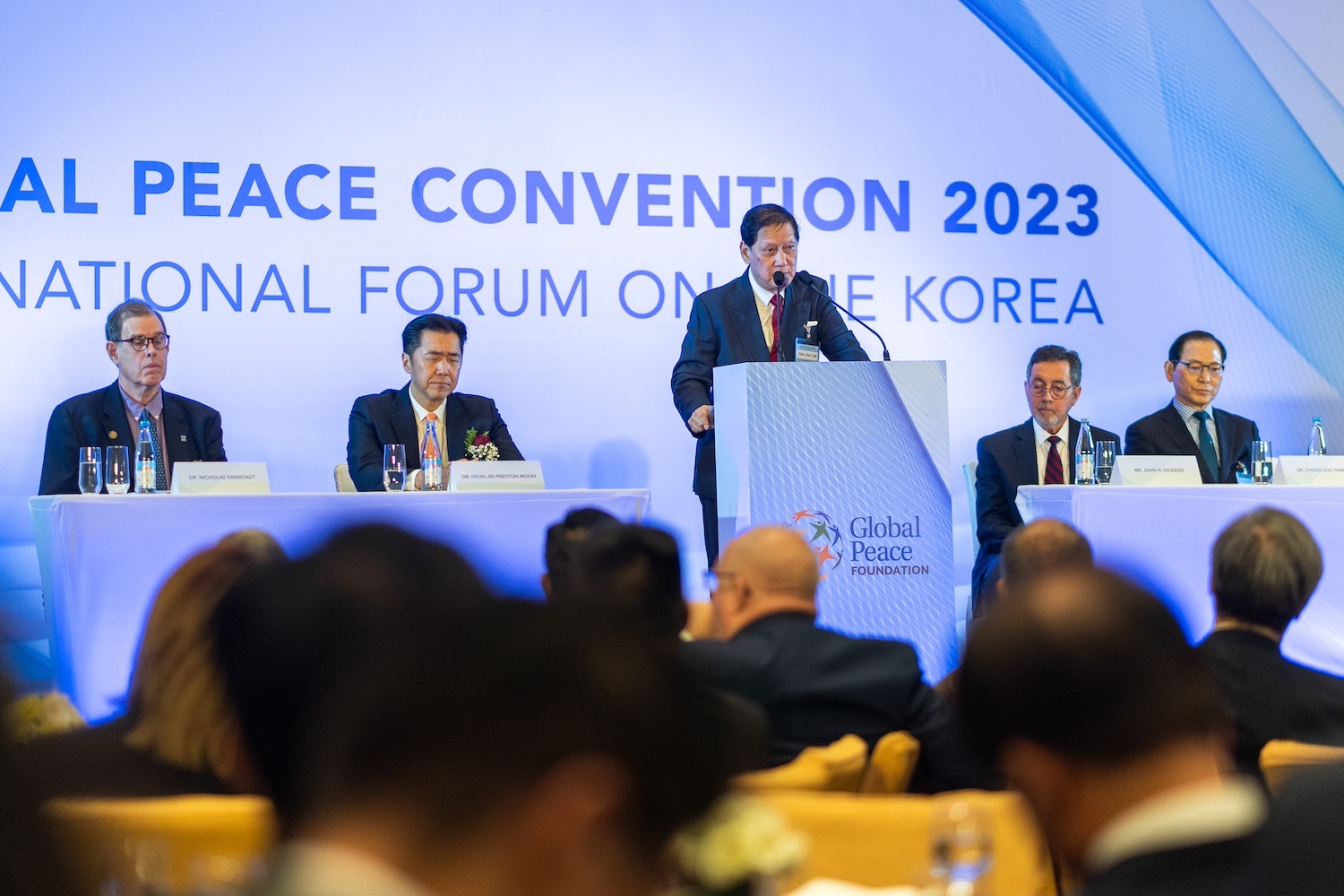Georgetown University|
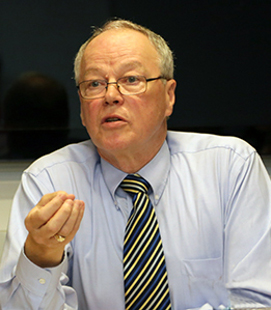
“In order to prepare for the future we need to look to our past.” Michael Marshall of the Global Peace Foundation quotes The Korean Dream: A Vision for a Unified Korea
Over 70 graduate and undergraduate students packed into a seminar room set up for 40 in Georgetown University’s School of Foreign Service last Tuesday, 28 October, to take part in a forum on “Envisioning Korean Reunification.”
The importance of a guiding vision that could provide a framework of principles and values to guide the reunification was the central theme of the main speaker, Global Peace Foundation’s Michael Marshall. He said that in a world where the Cold War geopolitical order had collapsed and a new world order was yet to emerge it was important to have a compass to navigate a path to the future.
He quoted arch-realist Henry Kissinger on the importance of vision in such a fluid, even volatile, global situation. “In today’s world, there are so many changes taking place simultaneously that only those societies that can develop a vision of the future are going to be able to handle them,” Kissinger said.
Mr. Marshall drew upon the book, The Korean Dream: A Vision for a United Korea, by GPF founder and chairman, Dr. Hyun Jin Preston Moon, recently published in Korea. In it Dr. Moon writes, “In order to prepare for the future we need to look to our past.” He highlights the traditional Korean philosophy of Hongik Ingan – living for the greater good of humanity – as the key guiding principle that should underpin reunification.
This principle had informed the views of the leaders of the Korean independence movement in the early 20th century, Mr. Marshall explained. He also suggested that it offered a perspective that could transcend the ideological differences between North and South as well as political division within South Korea. Shared Korean history and identity reached back much further than the politics of separation imposed by the Cold War.
“In today’s world, there are so many changes taking place simultaneously that only those societies that can develop a vision of the future are going to be able to handle them.” ~Henry Kissinger
Mr. Marshall also highlighted the book’s focus on the importance of broad citizen engagement in a process as historic as Korean reunification. This was not simply a question of public support but public involvement through the activities of civic associations and NGOs. GPF was instrumental in creating Action for Korea United, a coalition of almost 400 NGOs engaged with North Korean issues and representing a broad spectrum of South Korean society.
Such groups would play a critical role in any future reunification scenario through people-to-people contact with ordinary North Koreans and through providing support in areas beyond the scope of government.
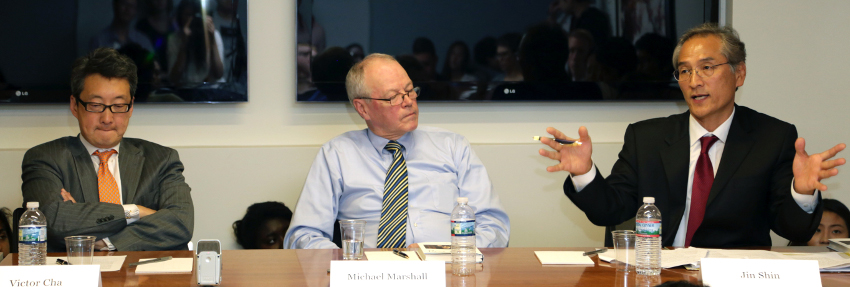
Left to Right: Dr. Victor Cha, director of Asian Studies and D.S. Song-KF Professor of Government and International Affairs at Georgetown, Michael Marshall, editor Korean Dream: A Vision for a Unified Korea, Global Peace Foundation, Dr. Jin Shin, president of the Institute for Peace Affairs, and Director of the National Strategy Institute at Chungnam National University in Korea.
Dr. Jin Shin, president of the Institute for Peace Affairs, and Director of the National Strategy Institute at Chungnam National University in Korea, commented on the presentation. He said that Korean reunification needed the support of neighboring nations, especially China and Japan, as well as the U.S. For that to happen countries had to expand their understanding of their national self-interest. This was particularly true in the case of China which had so far supported the status quo on the Korean peninsula.
Student questions focused on the likelihood of change coming to the North, and how it might happen if it did come. Some were skeptical that idealistic visions would ever alter the realpolitik of national interest.
In response, Mr. Marshall pointed to changes in North Korea and the region that were opening new possibilities. The North Korean regime no longer controlled people’s lives absolutely as in the past. It could not suppress the markets that had sprung up, nor control the flow of information into the country.
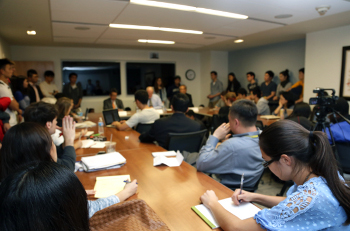
The topic of Korean Reunification filled the Georgetown University classroom beyond capacity.
Regionally, China’s interest in stability and economic development were increasingly at odds with North Korea’s nuclear program and its failure to implement meaningful economic reform. These circumstances increased the likelihood of change, and it was important to prepare for it now.
The forum was moderated by Dr. Victor Cha, director of Asian Studies and D.S. Song-KF Professor of Government and International Affairs at Georgetown. The forum was the first in a series of six addressing different aspects of Korean reunification that GPF is developing in cooperation with Dr. Cha.
Subsequent forums will be held at the Center for Strategic and International Studies in Washington, D.C., where Dr. Cha holds the Korea Chair. The next forum will be held on December 3, 2014, and will examine the role Mongolia can play in supporting Korean reunification and Northeast Asian peace.
Michael Marshall’s Talk:
https://www.globalpeace.org/video/michael-marshall-speaks-envisioning-korea-unification
Dr. Jin Shin’s Talk:
https://www.globalpeace.org/video/prof-jin-shin-speaks-envisioning-korea-unification


